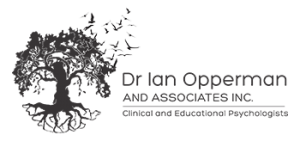Dr. Ian Opperman
My Relationship
Encounter-centered Couples Therapy (EcCT) (Two-Day Intensive)
Who should come to the EcCT Two Day Intensive?
Every relationship journeys to the crossroads of transformation. Perhaps your relationship is in crisis or failing. Or you don’t know how to heal after an affair. Or maybe it’s stagnant, and you long to take your relationship to a new level of the sheer pleasure and inspiration of it.
In private, two day sessions, international relationship specialist, Dr M C (Ian) Opperman will guide you to reinvent your relationship. Dr Opperman believes every relationship is a living laboratory in which couples help one another on the path to Relational Maturity. He will open your eyes to the previously unseen and unfolding possibilities in your connection. You will be amazed how these fresh insights energise you and your partnership.

Often couples who come on the two day intensive, find themselves stuck in the power struggle phase of their relationship, and feel that they are stuck with their back to the wall in terms of their relationship. The aim is thus to break this stalemate, and help the couple transform their relationship into a loving, connected unit with an open flow of communication.
A further aim is for the couple to look at one another with new eyes again, and understand that we don’t just oppose on another person’s point of view, and treat each other with contempt, criticism and stone walling because we are flawed in our personalities, but because we come from different emotional neighborhoods, or the internal world that we often are not consciously aware of ourselves.

Imago Relationship Therapy (IRT)
Imago Relationship Therapy is an integrated process for working with couples, parents and children, business colleagues, and others who seek to enhance the relationships they share.
Based on the ground-breaking work of Harville Hendrix, Ph.D., author of “Getting the Love You Want”, “Keeping the Love You Find”, and “Giving the Love That Heals”, Imago therapy is a wonderfully effective and safe approach to helping relationship partners grow into understanding each other more fully and relating more honestly as they evolve into greater wholeness as individuals within the relational context they share.
If you’ve felt like you’ve hit a dead end in your relationship, if you’ve asked yourself whether you have really chosen the right partner, if you’ve dreamed about love and happiness in your relationship and instead you’ve succumbed to reality, then Imago Relationship Therapy presents a new angle in looking at your relationship.

Emotion Focused Therapy
EFT is usually a short term, structured approach to couples therapy formulated in the early 80’s by Dr. Sue Johnson and Dr. Les Greenberg. EFT is a unique empirically-based approach, based on methods designed to help people accept, express, regulate, make sense of and transform emotion. It is based on clear, explicit conceptualizations of marital distress and adult love. These conceptualizations are supported by empirical research on the marital distress and adult attachment. EFT is collaborative and respectful of clients combining experiential Rogerian techniques with structural systemic interventions. Change strategies and interventions are specified in EFT. Key moves and moments in the change process have been mapped into nine steps and three change events in EFT.
EFT aims to expand and re-organize key emotional responses, create a shift in partners’ interactional positions and initiate new cycles of interactions, and to foster the creation of a secure bond between partners.
Most fundamentally, emotions tell us what is important to us in a situation and thus act as a guide to what we need or want. This, in turn, helps us to figure out what actions are appropriate. Emotions are basically adaptive and guide attachment as well as the tendency toward growth. EFT focuses on helping people become aware of and express their emotions, learn to tolerate and regulate them, reflect on them to make sense of them and transform them. EFT systematically but flexibly helps clients become aware of and make productive use of their emotions.
EFT works on the basic principle that to change, people cannot leave a place until they have arrived. Couples therefore first need to reclaim disowned experience before they can be changed by or change that experience. In this process, it is not that the people simply discover things they did not know but rather that they become aware of and experience aspects of themselves they have not consciously felt or may have previously disclaimed.
Based on emotion, attachment and growth therapy, EFT helps people identify which of their emotions they can trust and rely on as adaptive guides and which of their emotions are residues of painful memories that can be changed.
By accessing adaptive emotions (i.e. grief, empowering anger, compassion, etc) people are able to use these as resources to transform maladaptive emotions (i.e. fear, sadness of abandonment, and shame of inadequacy) that have developed from past negative learning or traumatic experiences.
